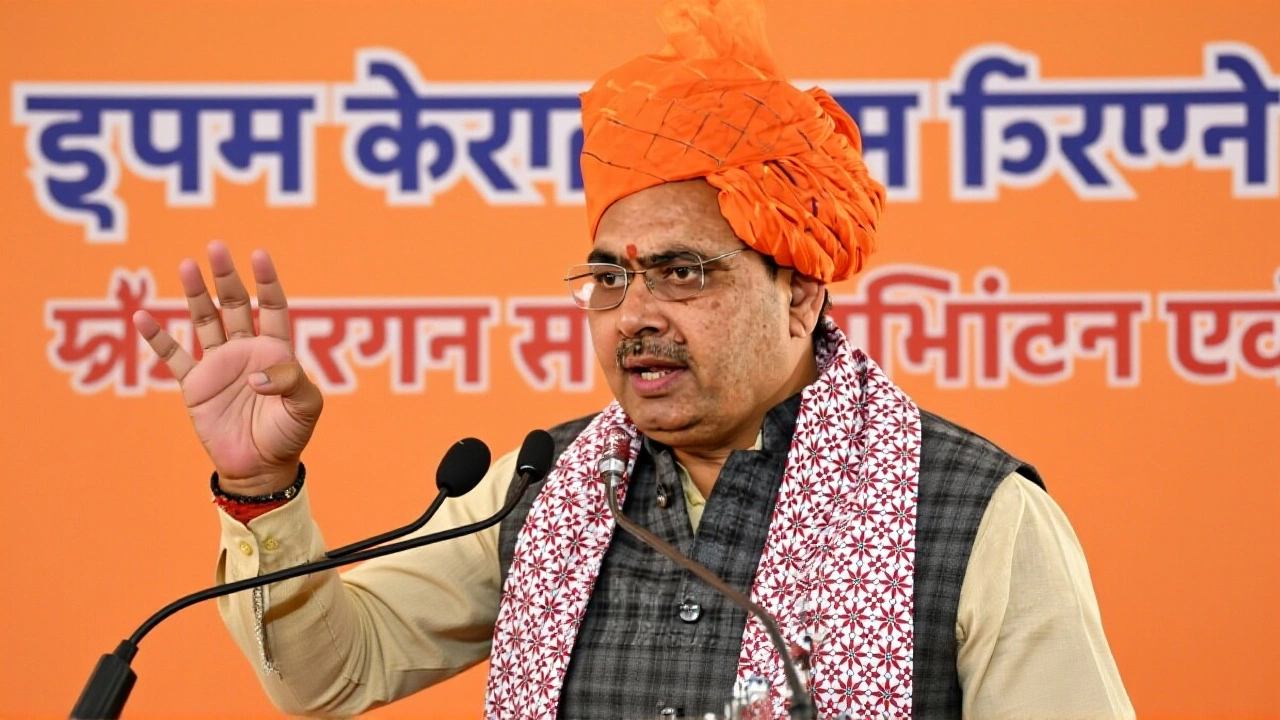On International Women's Day India, a staggering new study revealed that half of Indian women are living with chronic stress — and nearly half can’t sleep at night. The findings, released by Mpower, a Mumbai-based mental health organization, come from a year-long survey of 1.3 million women across urban and rural India. It’s not just burnout. It’s a systemic collapse of support. Women are juggling careers, caregiving, societal judgment, and financial insecurity — all while being told to smile through it. And the cost? A mental health crisis that’s no longer silent. It’s screaming.
The Numbers Don’t Lie
50% reported chronic stress. 47% struggle with insomnia. 41% feel socially isolated. 38% are anxious about career growth or financial stability. These aren’t abstract stats — they’re bedtime thoughts for millions. The data broke down by sector: 42% of corporate women showed clinical symptoms of depression and anxiety. 80% said stereotypes around maternity leave held them back. 90% admitted their mental health directly hurt their productivity. In the armed forces, trauma and PTSD were common — yet stigma kept most from seeking help. In colleges, academic pressure was crushing. In villages, isolation was compounded by lack of access to even basic counseling.
What’s striking isn’t just the scale — it’s the consistency. Whether a woman works in a Mumbai office, runs a family shop in Jaipur, or serves in the Indian Army, the pressures echo the same tune: too much to do, too little support, and no permission to fail.
City by City: The Hidden Wounds
In Mumbai, young women are collapsing under academic and corporate burnout — the city’s relentless pace leaves no room to breathe. In Delhi, safety fears have become a daily mental burden. Many women report symptoms of PTSD after harassment or assault, yet few report it — fearing disbelief or backlash. In Kolkata, strong family ties don’t fix the problem. The stigma around mental health is so deep that even talking about therapy feels like admitting weakness.
“You can cry at a funeral,” said one 29-year-old engineer from Delhi, “but not when your boss asks why you’re late after your child’s fever.”
Workplace Betrayals
Corporate India preaches diversity — but its policies still punish women for being mothers. Eight in ten women said they were passed over for promotions after returning from maternity leave. Nine in ten said their mental health suffered because of it. EAP-India found that emotional labor — the invisible work of managing family, moods, and social harmony — is never counted, never paid, and never acknowledged. “We expect women to be the glue,” said an EAP-India policy analyst. “Then we wonder why they break.”
Recommendations from the study were blunt: flexible hours, hybrid work, paid childcare subsidies, mental health days, and salary audits to close the gender pay gap. Yet few companies have acted. “We’ve had the same policy for five years,” said a human resources director in Bengaluru. “We just don’t track if anyone uses it.”

Armed Forces and the Silence of Service
Women in the Indian armed forces face a double bind: they’re trained to be resilient, but their trauma is treated as a liability. PTSD, anxiety, and depression are common after combat deployment or sexual harassment — yet reporting it risks career stagnation. “If you ask for help,” said a 32-year-old artillery officer from Pune, “they call you ‘not combat-ready.’ Not ‘in need of care.’”
There are no dedicated mental health units for women soldiers. No post-deployment counseling protocols. No peer support networks. Just silence — and a medal.
Breaking the Stigma — One Conversation at a Time
Mpower and other groups like Samvedna Care and Metropolis India are pushing for change. Their call? Make mental health as routine as a physical checkup. Mandatory postpartum screenings. Mental health training for primary care doctors. Public campaigns featuring real women — not celebrities — talking about therapy.
“We’ve normalized going to the dentist,” said Dr. Harshida Bhansali, Centre Head at Mpower. “Why not the therapist?”
They’re also urging the government to fund community mental health centers in rural areas, where 70% of Indian women live — and where access to a counselor might mean a 3-hour bus ride.

What Women Are Doing Themselves
While systems lag, women are finding ways to survive. Journaling. Daily walks. Meditation apps. Saying no. Setting boundaries. Building micro-support networks — WhatsApp groups of five women who check in every morning. One woman in Lucknow started a “No Apology Club” — a weekly meet-up where women share their failures without judgment.
“I used to think if I didn’t do everything perfectly, I was a failure,” said Priya, a single mother and schoolteacher from Bhopal. “Now I say: ‘I did what I could. That’s enough.’”
What Comes Next?
The real test isn’t the study. It’s what happens after March 8. Will companies implement mental health policies — or just post a LinkedIn message? Will the government fund rural clinics — or just issue a press release? Will families stop asking, “Why are you so tired?” and start asking, “What do you need?”
One thing’s clear: the status quo is killing women — slowly, silently, and systematically. The data is in. The solutions are known. Now it’s about courage — not just awareness.
Frequently Asked Questions
Why is chronic stress so high among Indian women compared to men?
Indian women face a unique combination of societal expectations, unpaid domestic labor, workplace discrimination, and lack of institutional support. While men also experience stress, women are often expected to manage both career and household without recognition or relief. Mpower’s data shows women are 2.3 times more likely to report insomnia and 1.8 times more likely to feel socially isolated than men in similar roles.
How does financial dependence affect women’s mental health?
Financial dependence traps women in abusive or unsupportive situations. Nearly 30% of women in Mpower’s study said they stayed in jobs they hated because they couldn’t afford to leave. This leads to learned helplessness, anxiety, and depression. Women who control their own finances report 40% lower stress levels — a key reason EAP-India pushes for pay transparency and wage audits.
Are mental health services accessible in rural India?
No. Only 12% of rural women have access to a licensed therapist within 50 kilometers. Most rely on untrained community workers or no help at all. Metropolis India recommends mobile mental health vans and tele-counseling via local anganwadi centers — but funding remains under 0.5% of the national health budget.
What’s the impact of maternity leave stereotypes on careers?
Eighty percent of corporate women reported being passed over for promotions after maternity leave, even when their performance was unchanged. Many are reassigned to less critical roles or excluded from high-profile projects. This isn’t just unfair — it’s economically damaging. A McKinsey study found companies with equitable parental policies see 34% higher retention of female talent.
Can mindfulness and exercise really help with chronic stress?
Yes — but they’re not substitutes for systemic change. Mpower found women who practiced daily mindfulness or 30-minute walks five times a week reduced anxiety symptoms by 45% over six months. Still, without workplace flexibility or emotional support, these practices become another burden — another thing to “get right.” They help, but they don’t fix the system.
What policy changes are being proposed by experts?
Experts are calling for: (1) Mandatory postpartum mental health screenings covered by insurance, (2) Government-funded community mental health hubs in every district, (3) Legal mandates for flexible work arrangements in companies over 50 employees, (4) Public awareness campaigns led by women’s groups, and (5) Inclusion of mental health in the National Health Mission budget. Without these, the crisis will only deepen.






Write a comment